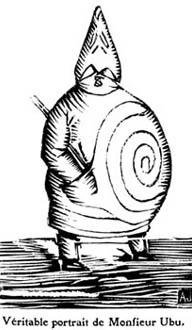Kenneth Patchen
"We Meet" New Directions Press Galley
Because this is a compilation of poems spanning most of Kenneth Patchen's life, I will not review the whole thing. I would like to focus on the section that was selected from his book Hurray for Anything (1960). This is my favorite section of the book. I have never read Patchen before this, and I haven't been as excited about a poet for a long time. These poems use elementary and colloquial words. A seventh grader would not need a dictionary to read this book, but its undeniable complexity lies in the unique arrangement of words and their subject matter. There is something very childlike about this poetry, it is simultaneously wise, crazy and silly, like a child, and like an old man.
Patchen was a strict pacifist. In Henry Miller's essay Man of Anger and Light, he called him a gangster, who lived by his own code, created his own language, and he didn't take shit from anyone. He got his work published the way he wanted it to, book art, type face, and no one wanted to argue with him. I say this because it exemplifies one of his many contradictions as an artist, this one being easy to explain; a peaceful lion. "This is the monstrous side of him, which makes him appear ruthless and rapacious. Within the snorting dragon, however, there is a gentle prince who suffers at the mention of the slightest cruelty or injustice."
What's not easy to explain is that his poetry seems very reasonable despite his subject matter often being made up of (sometimes humorous) nonsense. It is the nonsense of dreams, dreams that are only bizarre when you recount them the next day (while you were dreaming they seemed completely normal). The drawings that often accompany his poems are the same way. The look both bizarre and familar, they hold a darkness and an innocence. (see the poem "We Meet").
In the way that John Ashbery flirts with cliched speech, Patchen flirts with cliche subjects; loneliness, regret, longing. It is not these emotions that are cliche themselves, but the way they have been poeticized . Because of Patchen's speech, they become refreshing, the origin honest, the results moving. Here are two of my favorite poems from Hurray for Anything:
WHERE?
There's a place the man always say
Come in here, child
No cause you should weep
Wolf never catch the rabbit
Golden hair never turn white with grief
Come in here, child
No cause you should moan
Brother never hurt his brother
Nobody here ever wander without a home
There must be some such place somewhere
But I never heard of it
IT IS THE HOUR
A sigh is little altered
Beside the slow oak;
As the rustling fingers
Of the sun
Stir through the silvery ash
That begins to collect on the forest floor.
It is the hour
When the day seems to die
In our arms;
And we have not done
Much that was beautiful.
The voice speaking in these poems is both familiar and unusual, for example "No cause you should weep." I've never heard this before, but it sounds so right. I memorized the poem "Where?" after reading it once. It planted itself in my brain; the familiar cadence of my southern grandma, the juxtaposition of an innocent child with a tired and lonely old man, the withering hope. I admit I'm a sucker for sentimentality when it's not too cheesy. These poems were written with a big heart, I think its easy to see that. I get tired of poems that are so caught up in poetry itself. I don't want to be experimented on.
When I read these poems I was stunned, time slowed down, I watched my vision clear, like waking up. Its very hard to describe why or how a poem can make you feel so strongly. Much harder that is, than describing how a poem gets you intellectualizing. I think this is where critics fail. If they could describe a feeling so strong, then they would be famous poets, if they could sing a better song, they would. There is a mystery to poetry, like music, and thats not to say we shouldn't explore.
The poet laureate Billy Collins has a poem where he says, something like, you should "walk around in the room of a poem and feel around for a light switch..."
"But all they want to do is tie the poem to a chair with rope and torture a confession out of it."
It's just that I feel inadequate to try to describe how beautiful these poems are and why. If I could, I would write a poem, not a review. But I wanted to put them here, despite how they tower over my measly critique, on the off chance that maybe Andrew's heart would start beating.
